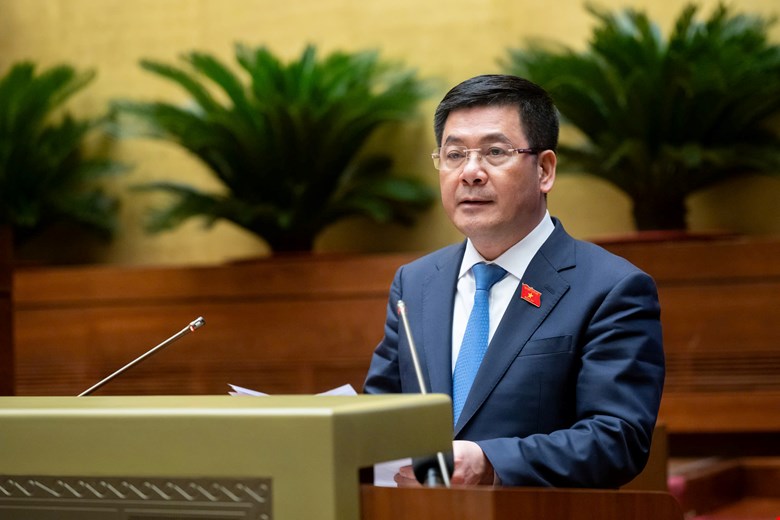HCMC – The Government has proposed that the State hold exclusive control over investments in nuclear power plants.
On October 21, Minister of Industry and Trade Nguyen Hong Dien presented a proposal to amend the Electricity Law during the opening of the 8th sitting of the National Assembly (NA).
The proposed changes emphasize the strategic importance of nuclear power for national security and advocate that the State should be the sole investor in nuclear power plant construction. These projects must adhere to the Atomic Energy Law and other relevant safety regulations.
The proposal also suggests that nuclear power be integrated into Vietnam’s national electricity development plan to safeguard energy security. Any future nuclear power projects would be required to employ modern and proven technologies. Specific mechanisms for the investment, construction, and operation of nuclear power plants would be established by the prime minister, depending on economic conditions.
During a recent meeting, the prime minister urged ministries and agencies to explore the potential for nuclear power development and called for adjustments to the National Power Development Plan VIII to align with current conditions.
The draft Electricity Law also reinforces the State’s monopoly over investments in multipurpose hydropower plants, urgent power projects, and power transmission systems of 220 kV or higher. Furthermore, the State would maintain control over the operation of the national electricity transmission grid and power dispatch system, except for projects financed by the private sector.
Le Quang Huy, chairman of the NA’s Committee on Science, Technology, and Environment, has stressed the need for thorough research on the development of nuclear power in Vietnam.
In response to the Government’s proposal to grant the State exclusive control over nuclear power investments, the committee recommended that the Ministry of Industry and Trade provide detailed reports on how nuclear power should be regulated in the amended Electricity Law.
However, the committee voiced concerns about giving the prime minister the authority to establish specific mechanisms for nuclear power projects, suggesting that this might conflict with existing legal frameworks. It recommended revising this provision to ensure legal consistency.
The committee also expressed reservations about regulations requiring long-term guarantees for contracted power output and purchase agreements for market participants. Such commitments are seen as potentially imposing excessive financial burdens on the state-owned Vietnam Electricity Group (EVN), which could disrupt its financial stability and hinder the move toward a competitive electricity market.
Additionally, the Government’s proposed electricity pricing reforms are a key topic of discussion. The reforms aim to create a more reasonable pricing structure and gradually phase out cross-subsidies between different consumer groups and regions. The proposal envisions market-based pricing without discrimination among power providers, while maintaining State control over pricing frameworks.
The committee called for further clarification on these pricing reforms and the planned elimination of cross-subsidies. It emphasized the importance of transparency in electricity pricing, particularly in supporting policy beneficiaries and providing affordable electricity to remote areas.
While it recommended continuing subsidies in the short term, it suggested developing a long-term strategy to fund them through the state budget or alternative financial sources.
Lastly, the committee told the Government to further review the proposed reforms and explore the introduction of time-based electricity pricing for purchases and sales.









